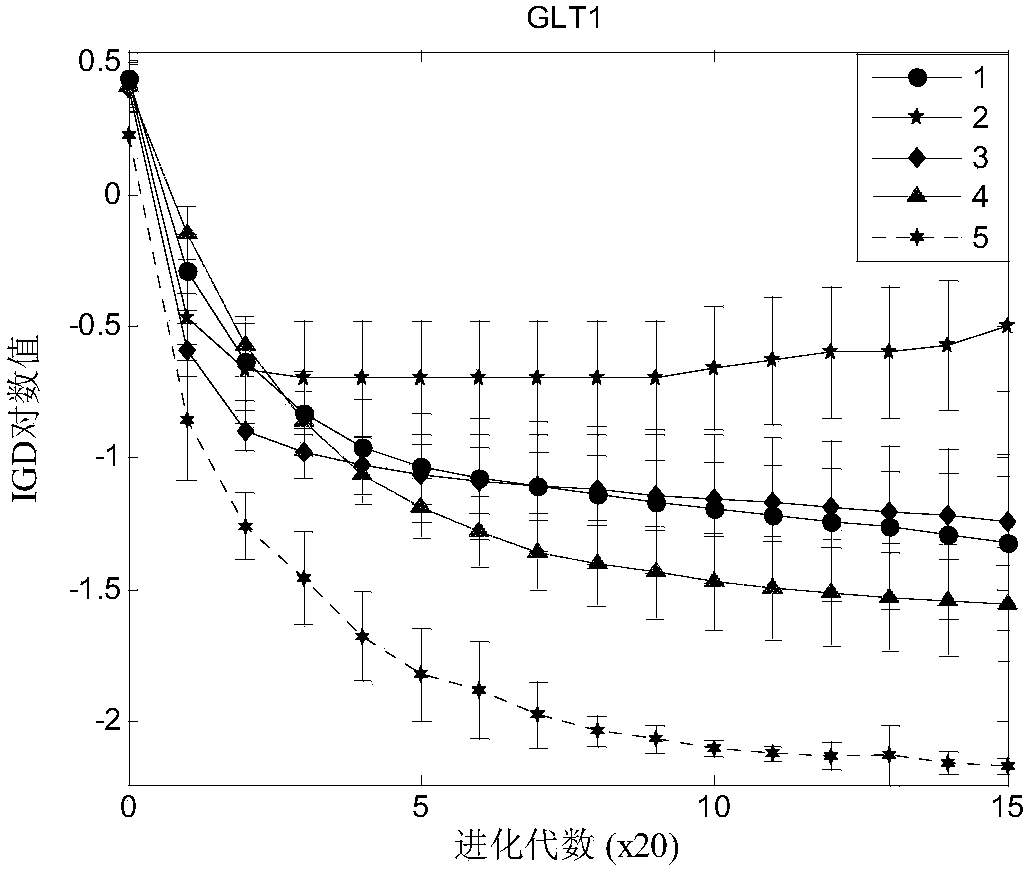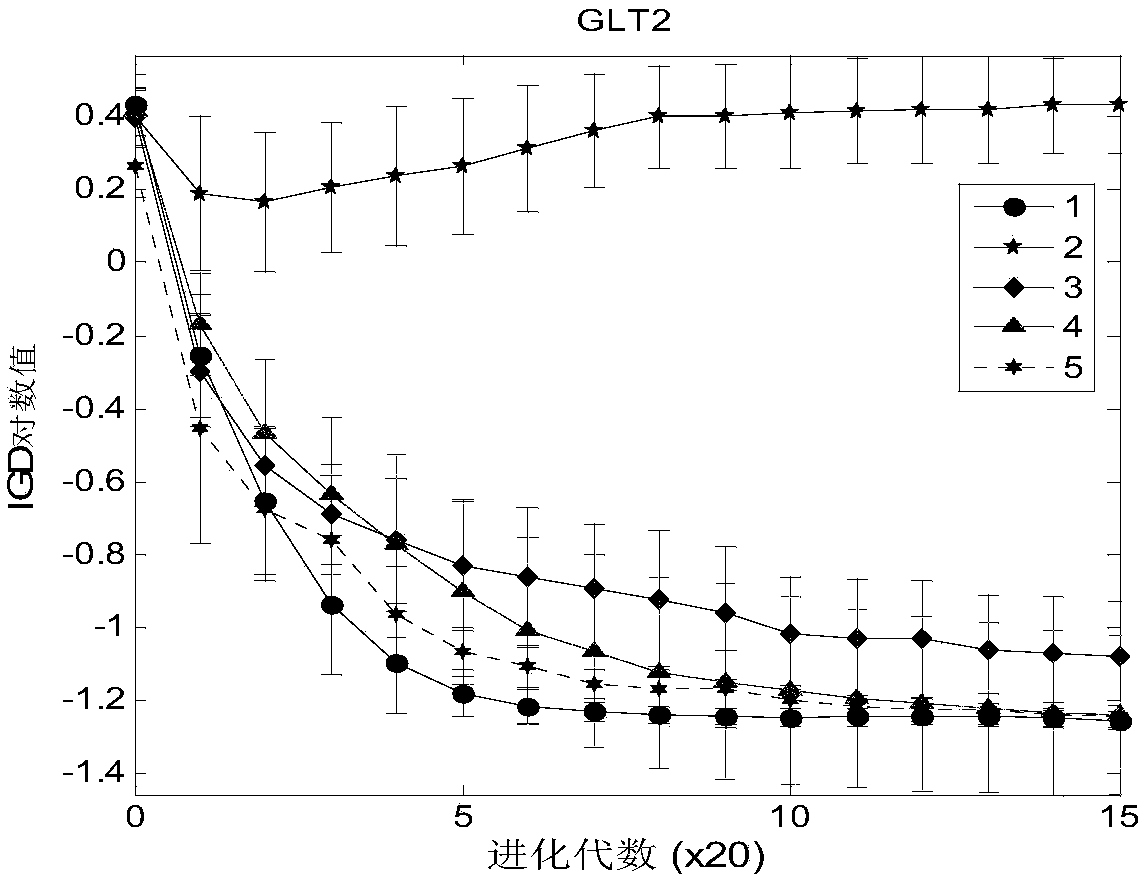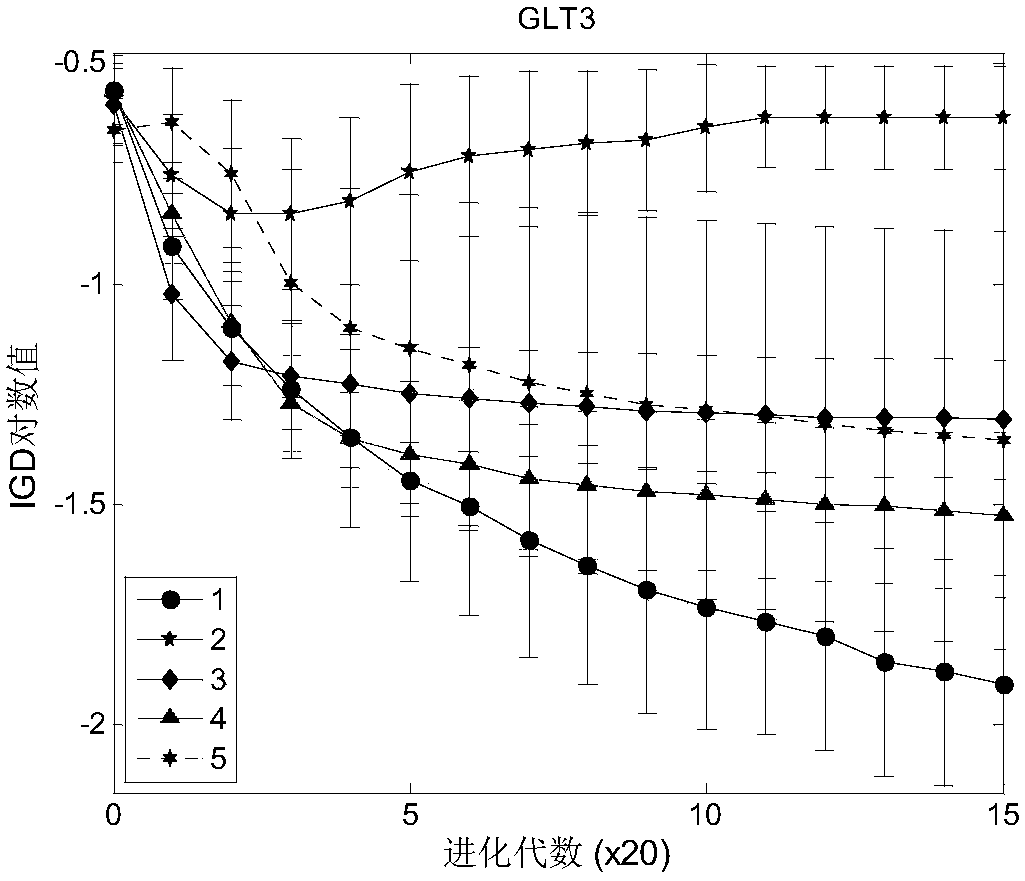Method for optimum design of gear reducers on basis of clustering multi-objective estimation of distribution algorithm
A distribution estimation algorithm, gear reducer technology, applied in design optimization/simulation, calculation, instrumentation, etc., can solve the problems of easy loss of population diversity and insufficient use of the local search ability of the algorithm, and achieve the effect of strengthening the search
- Summary
- Abstract
- Description
- Claims
- Application Information
AI Technical Summary
Problems solved by technology
Method used
Image
Examples
specific Embodiment approach 1
[0074] Specific implementation mode 1: The specific process of the gear reducer optimization design method based on the clustering multi-objective distribution estimation algorithm is as follows:
[0075] EDA has been widely used in the solution of MOP. Bosman and Thierens (Bosman PA, ThierensD. Multi-objective optimization with diversity preserving mixture-based density estimation evolutionary algorithms [J]. International Journal of Approximate Reasoning, 2002, 31 (3): 259-289) proposed a mixture-based Multi-objective iterative density estimation evolutionary algorithm (MIEDA), for solving continuous and discrete optimization problems, MIEDA is considered as a benchmark algorithm for other MEDAs. Pelikan et al. (Pelikan M, Sastry K, Goldberg D E. Multiobjective hBOA, clustering, and scalability [C]. Proceedings of the 7th Annual Conference on Genetic and Evolutionary Computation. ACM, 2005: 663-670) adopted a dominance-based framework and used K-means clustering algorithm i...
specific Embodiment approach 2
[0092] Specific embodiment two: the difference between this embodiment and specific embodiment one is: AHC (P, K) in the step two and two is specifically:
[0093] Use the AHC algorithm to divide the N individuals contained in the population P, that is, P={x 1 ,x 2 ,...,x N}, the principle of dividing into K classes is the following steps.
[0094] (1) Take each individual in the population P as a class;
[0095] (2) Loop:
[0096] (2.1) Calculate the Euclidean distance between every two different classes;
[0097] (2.2) Find out the two classes with the smallest distance and merge them into a new class;
[0098] (2.3) Determine whether the termination condition is met, that is, whether the number of clusters is greater than K, and if so, terminate and output the final clustering result, otherwise go to step (2.1).
[0099] AHC first regards each individual as a class, and then uses a series of mechanisms to merge different classes until the number of population clusters...
specific Embodiment approach 3
[0101] Specific implementation mode three: the difference between this implementation mode and specific implementation mode one or two is: the concrete process that new solution produces in described step 25 is:
[0102] For each individual x i ∈P,i=1,...,N proceed as follows:
[0103] Step 251: For individual x i Choose a covariance matrix Σ i ;
[0104]
[0105] which stated for individual x i The covariance matrix of the local class in which, Σ GC is the covariance matrix of the global class;
[0106] Step 252: Generate a new individual y i =SolGen(Σ i ,x i );
[0107] Step 253: keep the new solution A=A∪{y i}.
[0108] Other steps and parameters are the same as those in Embodiment 1 or Embodiment 2.
PUM
 Login to View More
Login to View More Abstract
Description
Claims
Application Information
 Login to View More
Login to View More - R&D
- Intellectual Property
- Life Sciences
- Materials
- Tech Scout
- Unparalleled Data Quality
- Higher Quality Content
- 60% Fewer Hallucinations
Browse by: Latest US Patents, China's latest patents, Technical Efficacy Thesaurus, Application Domain, Technology Topic, Popular Technical Reports.
© 2025 PatSnap. All rights reserved.Legal|Privacy policy|Modern Slavery Act Transparency Statement|Sitemap|About US| Contact US: help@patsnap.com



